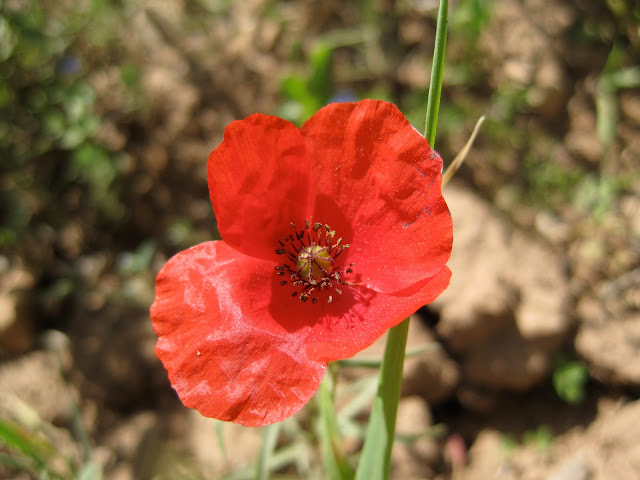Morocco-US bilateral relations, ‘very special’ - Clinton says
Washington, Mar 24 (MAP) - US secretary of State Hillary Clinton expressed satisfaction, on Wednesday in Washington, over bilateral relations with Morocco, which she described as “very special”. “We have a long history of friendship and partnership on almost every level, from economics to educational exchanges, from trade to development, and security,” said Clinton at a joint press conference with Moroccan peer Taib Fassi Fihri.
Clinton also reiterated the US position considering Morocco’s autonomy proposal for the Sahara as “serious, realistic, and credible,” adding that the US policy in this respect “remained constant” starting with the Clinton Administration and continuing through the Bush Administration and up to the present in the Obama Administration.
In this respect, she said the autonomy proposal is “a potential approach” to satisfy the aspirations of the population in the Sahara to run their own affairs in peace and dignity. As for the recently announced constitutional reforms by HM King Mohammed VI, Clinton said that these initiatives represent a “model for others in the region,” and “hold great promise first and foremost for the Moroccan people”.
HM the King launched comprehensive economic, social, political reforms, at a time other countries are only going one direction, the US official highlighted.(MAP)JA
Resolving Sahara issue, a ‘necessity’ for Maghreb unity- FM says
Washington, Mar 24 (MAP) - Foreign Minister, Taib Fassi Fihri, stressed, on Wednesday in Washington, the need for a settlement of the Sahara issue, saying that a united “Maghreb is a necessity for the five peoples of the region.” Speaking at a joint press conference with Secretary of State Hillary Clinton, Fassi Fihri recalled that Morocco put on the table in 2007 a proposal, welcomed by the international community as “a credible and realistic”, with a view to finding a lasting settlement to the over-three decade conflict. Morocco’s autonomy proposal, he said, allowed for launching a new cycle of negotiations in 2007. The Moroccan official added that a united Maghreb is also a need for regional security in the face of the threat posed by Al-Qaida, noting in this regard that this terrorist group continues to extend its activities in the region.
Concerning the situation in Libya, Fassi Fihri affirmed that, given the ties between the two peoples, Morocco is committed to implementing the UN Security Council resolution 1973 aiming to protect civilians. In this connection, he recalled that the Kingdom had sent a medical team to the Tunisian-Libyan borders to provide assistance to the refugees.
On Tuesday, Fassi Fihri, who is in Washington since Monday, met several US senior officials including Under Secretary of State for Political Affairs, William Burns, Assistant Secretary of State for Near Eastern Affairs Jeffrey D. Feltman and Under Secretary of State for Arms Control and International Security. (MAP)JA
Monarchy, guarantees unity of all components of Moroccan people- FM
Washington, Mar 24 (MAP) - HM King Mohammed VI, Commander of the Faithful, is the guarantor of the permanence of the State and the unity of all the constituents of the Moroccan people and society, Foreign Minister Taib Fassi Fihri highlighted on Wednesday in Washington. Speaking at a conference held by the Washington-based Brookings Institute, a nonprofit public policy organization. Fassi Fihri shed light on the constitutional reforms announced by HM the King in a speech to the nation on March 9. These reforms aim to strengthen the separation of powers, he said, highlighting the advanced regionalization project which was launched to promote democracy at the local level by allowing citizens to run their affairs.
Concerning the Sahara, Fassi Fihri reaffirmed that Morocco’s autonomy proposal, welcomed by the international as “serious, credible and realistic”, represents an appropriate solution to the over-three decade conflict. In this respect, he noted that the advanced regionalization project will lay the basis for this solution.
In an interview with the Associated Press, Fassi Fihri elaborated on the reforms to reinforce democracy in the Kingdom announced by HM the King in the royal speech, stressing that “a new Morocco” will emerge following the implementation of these reforms. Fassi Fihri recalled that the committee in charge of the revision of the constitution will submit its results for the approval of HM the King in June. Afterwards, the draft constitution will be put to a referendum vote by the people.(MAP)JA
Moroccan FM holds talks with UNSG in New York
New York (United Nations), Mar. 24 (MAP) – Moroccan Foreign Minister Taib Fassi Fihri held, on Thursday at the UN headquarters in New York, talks with the UN Secretary General (UNSG) Ban Ki-moon on the situation in the Arab world, particularly in the Maghreb region, as well as on the Sahara issue. On this occasion, Ban Ki-moon hailed the important reforms announced by HM King Mohammed VI, in his last speech to the nation, saying that they are part of a process initiated since the enthronement of the Sovereign.
During the meeting, which was held in the presence of Morocco’s Ambassador to the UN Mohamed Loulichki and the Secretary General’s Personal Envoy for the Sahara Christopher Ross, both sides assessed the negotiation process following the sixth informal talks on the Sahara that took place earlier this month in Malta.
Ban Ki-moon has recently described the talks as a “step forward” in this process. For his part, Fassi Fihri informed the Secretary General of the connection between the implementation of advanced regionalization, particularly in the Moroccan Sahara, and the purpose of the autonomy initiative, presented by Morocco as a basis for negotiated and democratic solution to this regional conflict. He also highlighted the setting up of the National Human Rights Council (CNDH) with the aim to promote human rights in Morocco.






















